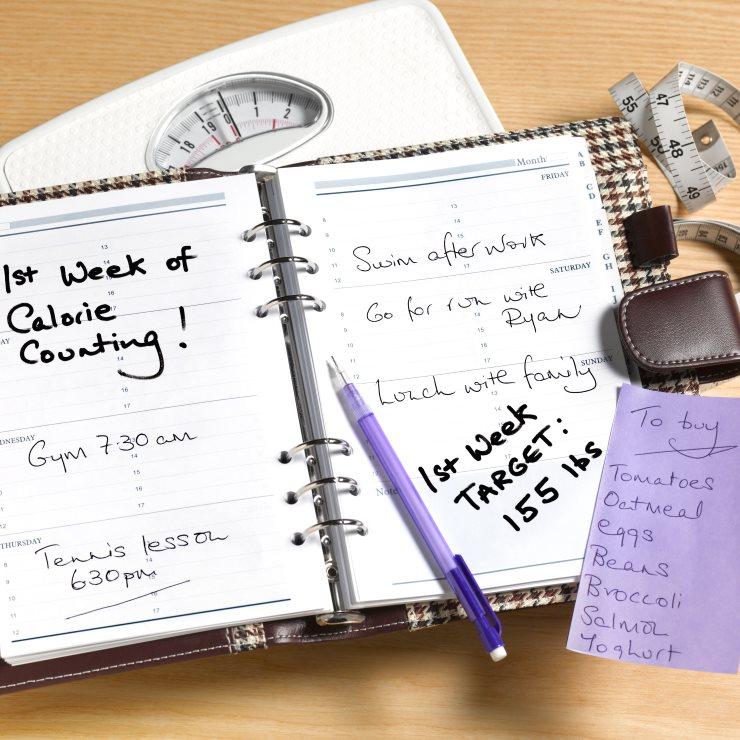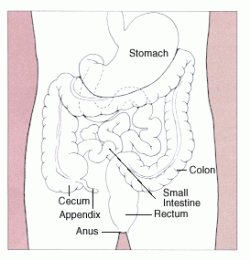How to Lose Weight Without Your Parents Knowing
Many teens want to lose a few pounds but fear that their parents will think that they're anorexic. To lose a few pounds without your parents noticing and worrying, use these tips and techniques.
Steps
- 1 Tell your parents you want to eat healthier. Instead of making your diet about the things you want to avoid (calories, bad cholesterol, sugar, saturated fats), emphasize all the things you’d like to consume (more vitamins, more minerals, healthy oils, healthy fats), which will automatically weed certain foods out of your diet. Not only will these changes help you lose weight in a healthy way, but the logic behind your doing so will be impossible to argue with; in fact, you might even get the whole family on board. Read How to Eat Healthy for more pointers; the more you can back up your choices, the more reasonable you will sound. (“This is loaded with saturated fats. You know our family has a history of heart disease” sounds much better than “I want to look good in skinny jeans.”)
- 2 Eat lots of low energy-density foods. These foods, such as fruits and veggies, are high in volume but low calories, meaning they look and feel like a lot despite the fact that they contain little caloric energy.[1] Snack on apples, carrots, and other healthy goodies in front of your folks as often as possible, and be sure to take extra helpings of veggies at dinner instead of more calorie-dense alternatives. Not only will this make you appear ravenous, but it will actually help you consume fewer calories and lose weight more easily. Best of all, nobody will be able to object to your healthy new dietary choices.
- 3 Eat several small portions during family meals. Serve yourself a small amount of food and then get seconds or even thirds. You don't have to finish it all, but the fact that you got multiple servings will make it seem like you ate more, especially since nobody will be able to see everything side-by-side on your plate. Also slow down while eating, it's better for your health.
- 4 Make the most of your school lunches. If your family meals tend to be large and fatty, eat small, healthy meals when your family's not around to make up for it. For example, have a salad with a little dressing for lunch at school so that later, you can have the lasagna that your dad made.
-
5
Eat better at restaurants. This can be tricky, especially if your family gets appetizers and dessert, so choose your own meal wisely. Limit yourself to one slice of bread or one roll and tell your family that you're saving room for your main meal. Go for chicken and/or fish as your main dish and get a salad with oil and vinegar dressing on the side. If everyone is getting dessert, try saying you don't like anything on the menu; otherwise, get a fruit salad, small portion of vanilla ice cream, or other healthy option. It may help to eat a bit of one unhealthy thing (ex. grab a Buffalo wing from the appetizer portion) but say you don’t like it very much and avoid having any more.
- Don’t just sit there; it draws attention to the fact that you're not eating as much. If you eat slowly and talk the whole time, it'll seem like you had more.
- 6 Make dinner yourself. Learn how to prepare healthy, low-calorie meals and offer to make them for your family. Not only will you have the ultimate control over what goes into your food, but your parents will be delighted that you’ve shown initiative and lightened their workload. Be sure that the meal you prepare is balanced (i.e. contains veggies, carbs, and protein); if it is too obviously low-cal (i.e. salad, steamed veggies, and more salad), your family will either hate the meal, think you’re on a crash diet, or both.
- 7 Enjoy your meals. Not only will this help keep your relationship to your food a healthy one, but if you make a point of visibly appreciating the food you eat, people won’t think you’re being severe or limiting yourself.
-
8
Work out at school. Use the campus gym, take up a sport, run on the track, or take a dance class. Try strength-training by lifting weights, which will not only make you more toned, but also increase your metabolism; muscular people have been shown to burn more calories even when they’re at rest.[2] Do interval training (i.e. alternating between low- and high-intensity activity) to burn calories. This has been shown to be an especially fast and effective way to improve heart health and endurance while losing weight.[3]
- If using the campus gym isn’t for you, try strength-training at home. Use cans instead of weights and exercise discreetly in your room.
- 9 Be more active in small, everyday ways. For example, if you run out of milk at home, offer to walk to a shop near you and get more. Walk to a nearby friend's house instead of being driven. If you go to the gym or have exercise equipment at home, read a school book while walking on the treadmill / using the elliptical / etc.; this way, if you exercise for a long time, your parents can chalk it up to your being absorbed by your work.
- 10 Don't eliminate unhealthy foods from your diet. Refusing to take so much as a bite of that pot roast / enchilada / birthday cake / etc. will not only draw attention to the fact that you’re on a calorie crusade, but also make you more likely to lose patience with your diet and give in to binge-eating. Cut back on foods that aren’t doing your body any favors, but don’t go to culinary extremes.
- 11 Maintain a healthy figure. Slimming down is one thing, but becoming stick-thin is another; no amount of deceit in the world will be able to hide an emaciated body – or the many health problems that come with it. Learn how to love yourself and let your confidence give you a makeover.
Related Articles
-
Essential Tips To Loose Weight Quickly
When it comes to losing weight quickly, most of the people are now th
-
Weight Loss Proving Elusive? This Advice Will Get You On Track
TIP! Work on getting a weight loss partner. It’s easier
-
Weight loss for teens
Weight loss for teens is about helping teenagers lose the extra
-
6 Diet Mistakes That Make It Harder To Walk Off Weight
We evolved to walk, which is why it feels so good. This simplest mode
-
How to Maintain Your Current Weight
Weight management encompasses an array of methods to maintain a curre
-
Top 10 Foods That Fight Bloating
Here is good news for those days when we puff up like a balloon and
- DON'T MISS
- 8 Weight Loss Tricks For People Who Dont Cook
- Weight Loss Proving Elusive? This Advice Will Get You On Track
- Top 5 Healthy Juices For Easy Weight Loss
- There Are No Easy Weight Loss Solutions
- Tips For Losing Weight Without Diet Pills
- Great Tips To Help You Lose Weight
- Facts About Losing Weight
- See What Happened To A Woman Who Ate Only Starbucks For A Year
- Herbal Weight Loss Tips By Lookcut
- Should You Try Carb Cycling For Weight Loss?




